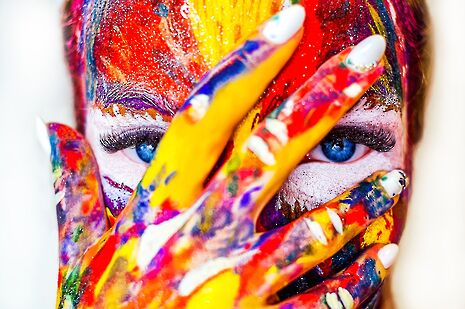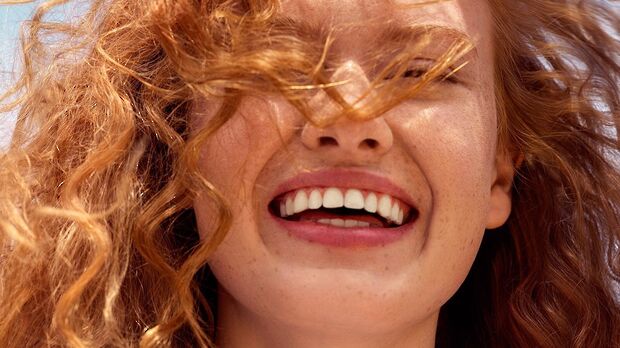What does makeup really mask?
Bella Gorman tells us about her relationship with makeup, and whether it is empowering or detrimental to her self-esteem

Quite often, before I leave my room, I’ll check myself in the mirror and think thank goodness for makeup. Yet, I’ll never remove my makeup at night and be grateful for my natural face. This isn’t to say that I don’t agree with makeup. I am a self-confessed makeup addict. Recently, though, I have started to question why and is it affecting the way I feel about myself? It’s a sad reality that many young women and men won’t leave the house without wearing makeup. This begs the question: should we start to view this unhealthy relationship with the cosmetics industry as a kind of epidemic?
Makeup is not all about monotonous uniformity but rather originality and daring innovation
YouTube is the biggest and easiest way to find ‘honest’ makeup reviews and tutorials. More than just informative, these videos are often entertaining and relaxing, and we begin to favour some influencers over others. The online beauty community can offer much insight, information and instruction to the consumer. However, these videos are often sponsored in order to earn extra money and increase following. It is easy to forget that the ‘glam’ makeup that we see online is a reproduction and not the product itself. The heavy use of artificial lighting in videos or the use of face tune on Instagram encourages the implicit message that by buying this product, we will achieve a flawless complexion. The product might appear to perform well, but often the result is a stark reminder that achieving the flawlessness presented in social media and advertisements, is not possible.
This notion that our natural faces aren’t acceptable enough for the world to see can cause a downward spiral into losing all sense of self-worth
This can kickstart a vicious cycle, as each time a product does not perform as well as one might hope, the desire to wear more makeup, or buy new makeup, gets stronger. The irony is that by wearing makeup, we are constantly reminded of the areas of our face that we want to conceal. A full-coverage ‘glam’ look has become the mainstream idea of what it means to wear makeup, which is perhaps why 1 in 50 people in the US are affected by body dysmorphic disorder. Makeup can then be used as a mask, to hide insecurities and shame that people feel about their face and perhaps even how they feel about themselves in general. This notion that our natural faces aren’t acceptable enough for the world to see can cause a downward spiral into losing all sense of self-worth. Is it then essential to break the cycle completely? If there wasn’t the choice to conceal our outward appearance, would we be more accepting of ourselves and others?
However, it is interesting that whilst makeup can be used to reinforce the typical beauty standards, it can also be used to challenge them. This is something that the famous Makeup Artist in the 90s, Kevyn Aucoin, did by introducing a soft natural look at a time of big and bold makeup. Not only this, he also questioned gender stereotypes by requesting male models.
Although the current perception of conventional makeup is a challenge to see how many layers of makeup we can wear without looking cakey, this does not reflect makeup artistry as a whole. Colourful makeup, particularly on the eyes and lips, can be seen as a form of self-expression and artistic creativity. Val Garland’s (a British Makeup Artist) bold and colourful designs are testament to this. Meanwhile, a current trend, as seen on the BBC programme Glow Up, is to create illusionistic patterns that use a face as a blank canvas rather than accentuating and emphasising facial features.
The active choice to wear makeup can also be very empowering, as it gives people the opportunity to have control over how they present themselves to others which, like clothes, can increase self-confidence. Makeup is not all about monotonous uniformity but rather originality and daring innovation.
On the whole, the most important thing to establish when picking up a makeup brush is if you have a healthy relationship with makeup. Makeup is detrimental to our self-esteem if we wear it because we feel we need to, not because we want to. Take social media with a pinch of salt and don’t feel the need to be guided by the products worn by big online beauty gurus. What we wear (or don’t wear) on our face is an expression of how we want to present ourselves and not who we wish we could be.
 News / Judge Business School advisor resigns over Epstein and Andrew links18 February 2026
News / Judge Business School advisor resigns over Epstein and Andrew links18 February 2026 News / Hundreds of Cambridge academics demand vote on fate of vet course20 February 2026
News / Hundreds of Cambridge academics demand vote on fate of vet course20 February 2026 News / Petition demands University reverse decision on vegan menu20 February 2026
News / Petition demands University reverse decision on vegan menu20 February 2026 News / CUCA members attend Reform rally in London20 February 2026
News / CUCA members attend Reform rally in London20 February 2026 News / Gov grants £36m to Cambridge supercomputer17 February 2026
News / Gov grants £36m to Cambridge supercomputer17 February 2026










